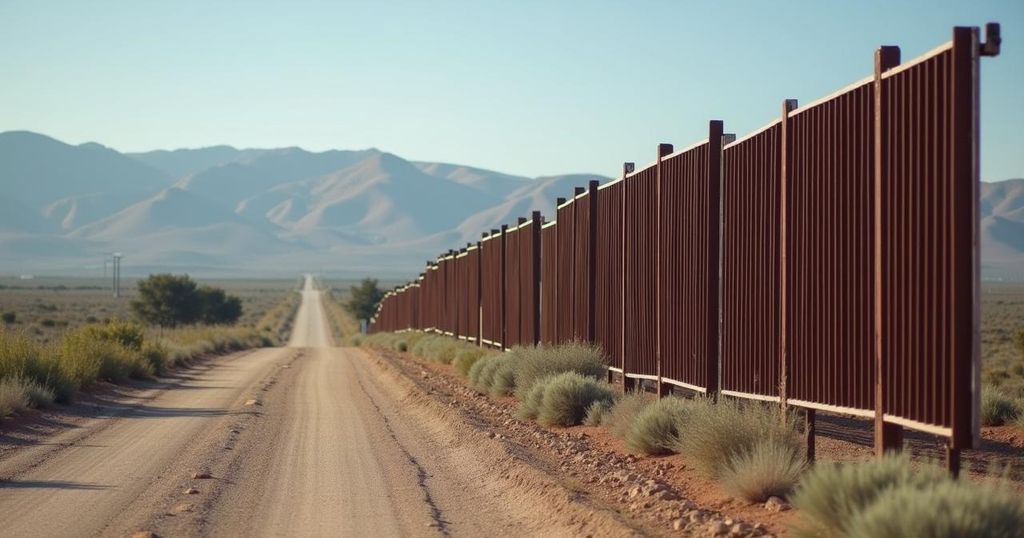In light of the upcoming U.S. elections, Mexico has escalated its border enforcement measures, resulting in a drastic decrease in migrant crossings. This policy shift is linked to an informal agreement with the Biden administration aimed at stabilizing trade and addressing political pressures in the U.S., significantly affecting the migration process while introducing additional challenges for migrants.
As the United States presidential election approaches, Mexico has intensified its enforcement at the border, resulting in a significant drop in the number of migrants reaching the U.S. Analysts attribute this development to an unwritten agreement between the United States and Mexico, facilitated by the Biden-Harris administration last year. This cooperation is motivated by Mexico’s economic interests to maintain smooth trade relations with the U.S. and avoid the political ramifications of border chaos during the electoral period. In recent months, there has been a striking decrease in illegal crossings, with encounters plummeting from nearly 250,000 in December to below 60,000 last month, marking the lowest levels since Trump’s administration. Mexico’s President Claudia Sheinbaum recognizes the impact that migrant flows have on U.S. electoral dynamics, particularly concerned about the influence on the candidacy of Vice President Kamala Harris. Initially, the government of Mexico may have employed strategies to manage migration, but the current strategy appears to involve a more systematic approach to curb migratory flows, which will likely persist in the lead-up to the elections. The situation for migrants in Mexico has significantly worsened. Many are now trapped in urban encampments, as migration routes and asylum processes have become increasingly stringent. The Sarmiento family from Venezuela serves as a poignant example, having been forced to remain in Mexico City after their attempts to reach the U.S. border were thwarted by intensified immigration enforcement. Following phone calls and discussions between U.S. officials and President Sheinbaum, the United States reinforced its demands for increased migration enforcement measures from Mexico, leveraging the country’s deep dependency on cross-border trade. The U.S. explicitly sought to bolster visa regulations for migrants and curb asylum processes, resulting in Mexico initiating stricter deportations and making the journey into the U.S. not only difficult but perilous. While the Biden administration has implemented changes to manage the surge, it remains unclear how long Mexico will sustain this enforcement policy, particularly with its new leadership. Nonetheless, the current strategy signals a significant shift in Mexican migration policy, one driven by both economic imperatives and electoral considerations. Overall, while migrants face escalating challenges in their quest for refuge, the decrease in crossings and the enforcement regime highlight the complexities of international agreements and domestic politics concerning migration, particularly as elections approach.
The article discusses the ongoing changes in migration patterns at the U.S.-Mexico border in anticipation of the upcoming U.S. presidential election. It highlights how intensified enforcement measures by Mexico have led to a marked reduction in the number of migrants crossing into the U.S., showcasing an unformalized agreement between the two countries. This shift in policy is presented as a mutually beneficial arrangement where Mexico aims to stabilize its economic interests while navigating the political landscape of U.S. elections.
In conclusion, the enforcement of stricter border policies by Mexico illustrates a strategic response to the impending U.S. presidential elections, reflecting both economic motivations and political influences. These developments have resulted in significant reductions in migrant crossings but have simultaneously exacerbated the hardships faced by those seeking refuge, indicating a complicated intersection of humanitarian issues and international diplomacy.
Original Source: www.usatoday.com






